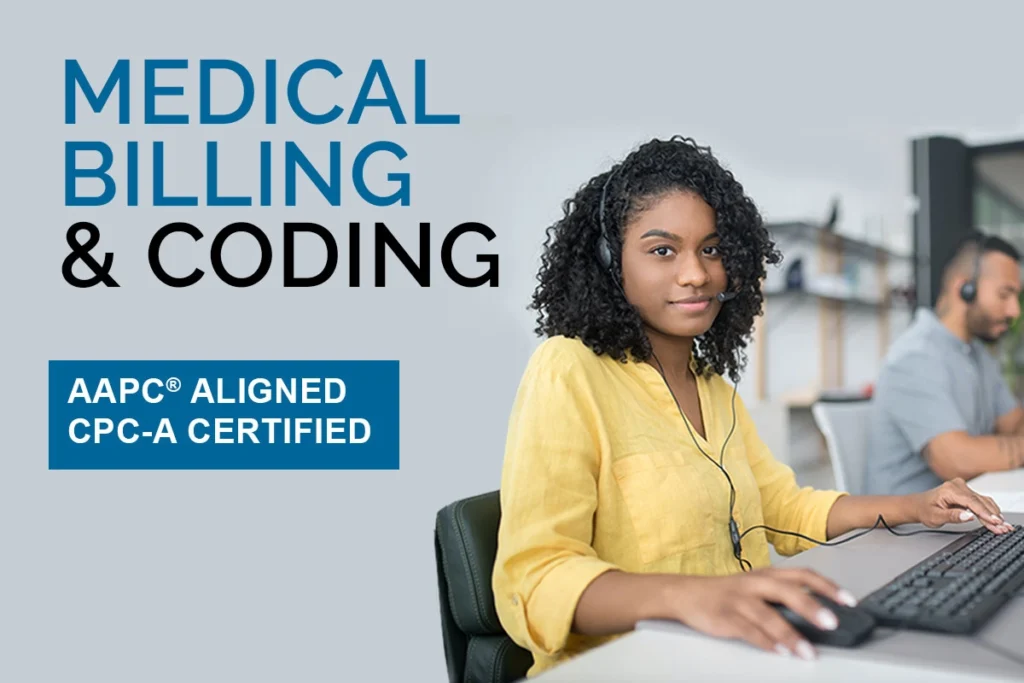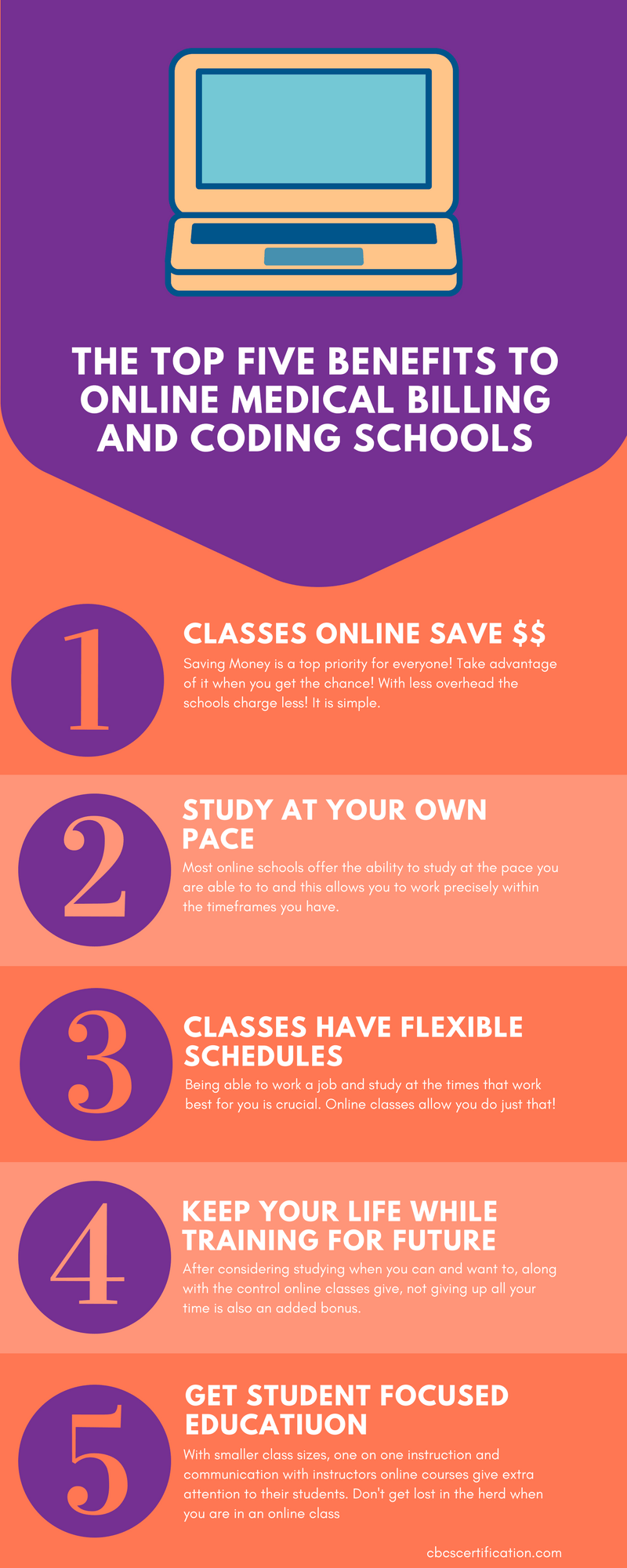
Have you ever considered a career in the healthcare industry but felt unsure about where to begin? Perhaps you’ve heard about billing and coding, but what exactly does it entail? Let’s unravel this together.
What is Medical Billing and Coding?
At its core, medical billing and coding involves two vital components of healthcare administration. Medical coding transforms healthcare diagnoses, procedures, and medical services into universal alphanumeric codes. This coding is crucial for billing purposes, ensuring healthcare providers are compensated for their services.
Conversely, medical billing is the process that follows coding. It involves submitting and following up on claims with health insurance companies to receive payment for services rendered. In this way, billing and coding professionals play an integral role in the healthcare system, bridging the gap between patient care and financial operations.
Why Choose Online Classes for Billing and Coding?
You may wonder why online classes are an excellent option for learning billing and coding. The flexibility of online education allows you to learn at your own pace while balancing personal and professional commitments. Whether you’re a busy parent, a full-time employee, or someone looking to transition careers, online classes can cater to your unique schedule.
Moreover, online classes often provide access to a diverse range of resources such as video lectures, interactive quizzes, and online discussion forums. These tools can enhance your learning experience and help you master the intricacies of billing and coding.
Benefits of Online Learning
Here are a few reasons you might find online learning appealing:
- Flexibility: You can learn from anywhere and at any time.
- Self-Paced: Tackle the material at a speed that works for you.
- Cost-Effective: Often, online programs are more affordable compared to traditional classrooms.
- Access to Resources: A wealth of resources can be found online, enhancing your learning experience.

What to Expect from Billing and Coding Online Classes
When you enroll in a billing and coding online class, you can anticipate a well-structured curriculum that covers various essential topics. These courses typically include:
Introduction to Medical Terminology
Understanding medical terminology is crucial for anyone in billing and coding. This section will familiarize you with the language used in the healthcare field. By learning the meaning of common terms, you will feel more confident processing information related to patients’ health and treatments.
Coding Systems
Here, you’ll learn about the two main coding systems used in the industry: the International Classification of Diseases (ICD) and the Current Procedural Terminology (CPT). Each system has its unique structure and function, and mastering these codes is fundamental for accurate billing.
| Code System | Description |
|---|---|
| ICD | Codes for diagnosis and inpatient procedures. |
| CPT | Codes for outpatient and physician services. |
Billing Processes
Understanding the billing cycle is another key aspect of your training. You will learn how claims are submitted to insurance companies, what verification processes entail, and how to follow up on claims denials. This section will prepare you to handle real-world scenarios and ensure that claims are correctly processed.
Compliance and Regulations
In this segment, you will explore the legal frameworks and guidelines that govern billing and coding. Learning about compliance helps to mitigate risks associated with fraud and ensures ethical standards are maintained throughout the process.
Medical Billing Software
Familiarity with billing software is essential, as it streamlines the billing process and enhances productivity. You will typically receive hands-on training with software used in the industry. Understanding how to navigate these tools can give you a competitive advantage when seeking employment.
Essential Skills for Billing and Coding Professionals
To succeed in billing and coding, certain skills will benefit you immensely. Here’s a detailed look at these essential skills:
Attention to Detail
In this field, precision is paramount. You need to ensure that every code is entered correctly, as even the smallest mistake can lead to significant financial repercussions for healthcare providers. Cultivating a meticulous mindset will serve you well.
Analytical Skills
Billing and coding often require you to analyze information critically. You’ll need to interpret medical records and ascertain the appropriate codes, diagnosing issues in billing processes along the way.
Communication Skills
As a billing and coding professional, you will often communicate with healthcare providers, insurance representatives, and patients. Strong verbal and written communication skills will allow you to convey complex information clearly and effectively.
Technical Proficiency
Proficiency in using various software applications is essential for efficiently navigating coding and billing systems. Familiarizing yourself with the latest tools will enhance your efficiency and productivity.

Online Class Formats for Billing and Coding
When you decide to pursue online education in billing and coding, you’ll encounter various formats. Each offers distinct advantages depending on your learning preferences:
Asynchronous Learning
With asynchronous classes, you have the flexibility to consume course material at your convenience. You can watch recorded lectures and complete assignments on your schedule, making it an excellent option for busy individuals.
Synchronous Learning
Synchronous learning mimics a traditional classroom environment, where you attend live sessions at specific times. This format allows for real-time interaction with instructors and fellow students, fostering a sense of community.
Hybrid Learning
A hybrid format combines both asynchronous and synchronous elements. You can complete some coursework independently while participating in live sessions for discussions and group work. This blend can cater to different learning styles and needs.
Duration and Cost of Online Classes
The duration and cost of billing and coding online classes can vary widely based on several factors, including the institution and the specific program chosen. Here’s a general idea of what you can expect:
Duration
- Certificate Programs: Often take 6 to 12 months to complete.
- Associate Degrees: Typically last 1 to 2 years.
- Bachelor’s Degrees: Usually take around 3 to 4 years.
Cost
Tuition costs widely vary depending on the program. Here’s a rough breakdown to give you an idea:
| Program Type | Estimated Cost |
|---|---|
| Certificate Programs | $1,000 – $5,000 |
| Associate Degrees | $5,000 – $20,000 |
| Bachelor’s Degrees | $20,000 – $60,000 |

Accreditation Matters
When selecting an online program, it’s vital to ensure that the institution is accredited. Accreditation assures you that the education provided meets specific standards of quality. It can significantly enhance your employability, as employers often prefer graduates from accredited programs.
Recognizing reputable accrediting bodies, such as the American Academy of Professional Coders (AAPC) or the American Health Information Management Association (AHIMA), can guide your decision-making process.
Preparing for the Certification Exam
Once you complete your online classes, you may be eager to become certified in billing and coding. Obtaining certification can enhance your job prospects and demonstrate your professional competency. Here’s how you can prepare:
Study Groups
Joining study groups can offer support and motivation. Connecting with classmates can help reinforce your understanding of challenging concepts and provide a platform for discussion.
Practice Exams
Taking practice exams is a fantastic way to familiarize yourself with the exam format and types of questions you might encounter. Regular testing of your knowledge can also help identify areas requiring further study.
Time Management
Developing a study schedule can help you stay organized and reduce last-minute cramming. Dedicate specific time blocks leading up to the exam for focused study and review.

Career Opportunities in Billing and Coding
As you consider entering the field, you may wonder what types of career opportunities await you. The healthcare industry is broad, offering numerous pathways in billing and coding:
Medical Billing Specialist
In this role, you will primarily handle the billing process, ensuring accurate claim submission and follow-ups. You will work closely with healthcare providers to resolve any billing issues.
Medical Coder
As a medical coder, your primary focus will be on translating medical procedures and diagnoses into codes. You’ll need to stay current on coding updates that may affect your work.
Health Information Technician
This position combines elements of coding and billing but also involves managing patient records, ensuring their accuracy, and maintaining compliance with regulations.
Revenue Cycle Manager
For those seeking more advanced positions, a career as a revenue cycle manager can be fulfilling. In this role, you’d oversee the entire billing and coding process, managing revenue flow, improving collection rates, and interacting with insurance agencies.
Job Outlook and Salary Potential
Before embarking on your career path, it’s natural to consider the job outlook and salary potential in billing and coding. According to the U.S. Bureau of Labor Statistics (BLS), employment in this field is expected to grow by 8% from 2019 to 2029, which is faster than the average for all occupations. The increasing demand for healthcare services contributes significantly to this trend.
Salary Expectations
Salaries can vary based on experience, location, and job type. Here’s a general idea of what you might expect:
| Position | Average Salary |
|---|---|
| Medical Billing Specialist | $35,000 – $50,000 |
| Medical Coder | $45,000 – $60,000 |
| Health Information Technician | $42,000 – $58,000 |
| Revenue Cycle Manager | $75,000 – $100,000 |

How to Get Started Today
If you’re feeling inspired and ready to take the plunge into billing and coding, here’s how to get started:
Research Programs
Begin by researching online programs that align with your needs. Look for accreditation, curriculum details, and student reviews to gauge quality.
Enroll
Once you’ve selected a program, reach out to admissions for guidance on the enrollment process. Ensure you have all necessary materials ready, like transcripts and identification.
Plan Your Schedule
Consider how much time you can commit to your studies. Create a timetable that facilitates consistent learning while balancing your other responsibilities.
Network
Engage with peers and professionals in the field. Networking opens doors to mentorship opportunities and can lead to job referrals in the future.
In Conclusion
Engaging in online classes for billing and coding can transform your career trajectory and lead you into a fulfilling role within the healthcare industry. With flexibility, a plethora of resources at your fingertips, and the potential for a stable and rewarding job, this path may be just what you need.
As you embark on this journey, keep in mind that persistence, dedication, and continuous learning are vital. The world of healthcare is ever-evolving, and being adaptable will ensure your success. So, are you ready to take the first step? Your future in billing and coding may be just around the corner!





